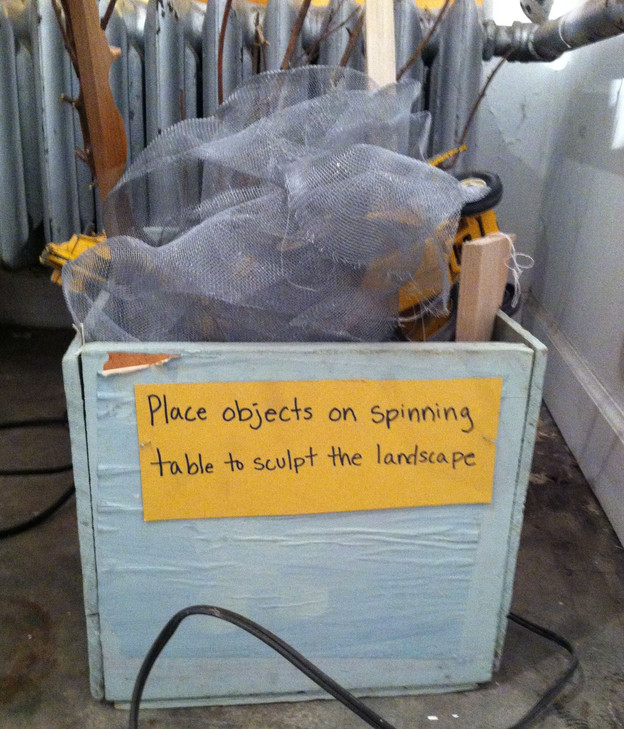Picnics in winter: A reading at the Good Tyme Writers Buffet

Sometimes you need to remind yourself that it hasn't always been like this. That is the utopian promise of memory, the recollection that another world is possible because you once lived in it. These memories of an alternative are not limited to the political and historical; they can also occur in quotidian patterns, the small, daily acts of the radical imagination. In the winter, in a state like Michigan, where the snow and cold lock you down, you need to remember summer. Remembering summer is also a projective act, an expectation of change, between a past and a future. Reminding yourself that winter has not always ruled is a small act of creative rebellion.
This spirit of remembering and projecting animated the last meeting of the Good Tyme Writers Buffet, held in late February in Hamtramck. The Writers Buffet is an ongoing reading series/potluck meal organized by Steve Hughes and hosted at Public Pool, a collective gallery space dedicated to contemporary arts. This winter, the Public Pool featured a display of work arising from a series of urban explorations by Picnic Club Detroit. Operating as a deliberate act of urban exploration, the Picnic Club hosts events throughout the year in the spirit of fostering "curiosity and deeper understanding about the landscapes that surround us through inquiry, play, and picnics." Think of the Situationists with a blanket and a basket of sandwiches: communal eating in public as a kind of social practice. Michael Stone-Richards has recently argued that such social practices have emerged as a dominant form of Detroit art, a "retreating / retracing" of historically-layered landscapes.
Literary readings, too, are a social practice, and the Writers Buffet was conducted with the same collaborative spirit, a collective remembering of summer. Steve Hughes introduced each writer by way of their contribution to the potluck meal, a picnic in the winter. Each writer, in turn, brought work that reflected, in some way, on the memory of summertime. Jack Cheng, a novelist originally from Detroit now living in Brooklyn, shared a character sketch of layered memories focusing on an injured football player riding a motorcyle. Terry Blackhawk (whose work at iO Literary Arts I featured in my last post) read poems of disaster, hermit crabs, and love in public places. Jacqui Au, another Detroit poet, began her reading with a poem as guided meditation on the hot, buggy challenges of sleeping in the summer. Anna Clark finished the evening with a story about killing turkeys illicitly in a small Michigan town. Just as Picnic Club Detroit attempts to reconnect with the overburdened landscapes of Detroit, the February meeting of the Writer's Buffet offered up literature as a collective remembering of alternatives.
Detroit poetries: Field notes